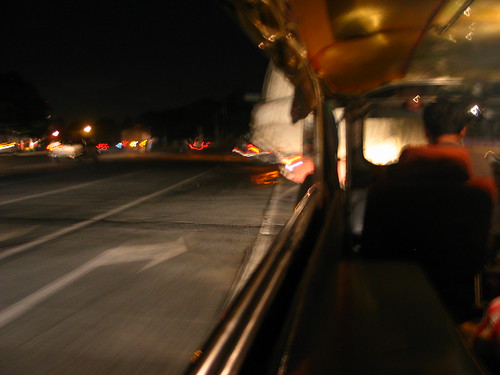

the relevance of a monastery in the age of touchscreen, sunscreen, facebook and ipod
Many, I suppose, are afflicted with compulsive facebook and/or multiply syndrome. I mean how many of us grab any chance we can get to check facebook or multiply any given minute? (and now with iphone and its applications, checking these sites can be done heartbeat after hearbeat). Minute after minute to check what one is doing (in the loo) or what one is up to after being dead bored in the last 30 minutes or where one plans to go in an hour. These social networking sites, if one happens to still get his hands on a newspaper and really read the paper (in my generation, who buys newspaper anyway when many a site update news in real time; but if we do, it's either the Saturday paper for weekend party updates at sundown or Sunday paper for job hunting), can make or unmake a techie, build or rebuild friendships, create or break opportunities or worse, in the news not so long ago, these sites become the centerstage for one kiddo who ended his life for the world to see (I'm not sure though if it was a social networking site. i'm too lazy to google it). May his soul rest in peace.
The idea of keeping ourselves updated makes us also vulnerable to keep everything public, therefore easily accessible. Some, if you notice in many youtube anonymous comments, goes beyond propriety and unto the harsh reality of digital mudslinging and washing dirty underpants in public. Who can stand these verbal, rather digital assault? The stress level of this generation was never imagined in our grandparent's time. On the other hand, the demands in workplaces in concrete jungles can be as toxic as it can get. And for the most part, spa, mindless sex and what-not are all but temporary relief.
Though I am not saying the monastery offers one eternal solution in this modern age but in this age of touchscreen and online dating it has become a refuge for the heartbroken, an unwed pregnant woman and many urbanite souls who wish to take a walk away from lala land--and gallivant inside the hundred hectare property where peace and quite and good food (for the body and spirit) are well-prepared. Though not as disconnected from the world as you might think (stop thinking it's warped in medieval period. the monk I know has a cellular phone and email), you will feel transported to a place where peace and quite and good food is enjoyed by all.
You just let silence speak to you, and if, at any rate, it becomes deafening, you can always have someone to speak with--the Benedictine priest, the monks, the kitchen hand, the gardener and if you may, God inside or outside the adoration chapel.
I came there to experience what most people who have visited the place rave about--a very solemn dawn mass with a heavenly choir singing. But in the end, it was not what I was seeking after all. In there, I found my peace and sense of self even for just a couple of days. I surrender myself to a life of prayer in the tradition of the Benedictine monks. I hate to admit it, but the silence that spoke to me from the hills of Bukidnon made tears well up my eyes--and flowed endlessly until I feel a certain feeling of lightness.
What the guidebook didn't warn me is that I'll fall in love with the place the moment its perfect rhythm pumps into my system-- so hopelessly in love I'll be coming here for an annual self-retreat year after year after year.




it's not what you're thinking...(whilst waiting for the pealing of the bell for Misa de Gallo)




























